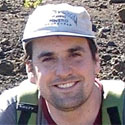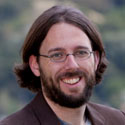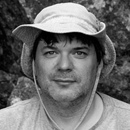Advisory Board and Editors Computational Biology

Marcus Fraga Vieira
Prof. Marcus Vieira is the Bioengineering and Biomechanics Laboratory head at Universidade Federal de Goiás. He received BS in Electrical Engineering and Physical Education from the Universidade Federal de Goiás, and MSc and PhD in Biomedical Engineering from the Universidade de São Paulo. He focuses his research in computational neuroscience and biomechanics, especially in motoneuron modeling, spinal CPG, nonlinear tools for movement variability analysis, including entropy, fractal dimension and recurrence analysis, coherence analysis in postural control, transitory tasks such as gait initiation, and gait dynamic stability.

Ranjit Vijayan
Dr. Ranjit Vijayan obtained his PhD in Life Sciences Interface/Biochemistry from the University of Oxford, UK, and his DipGrad in Management from the London School of Economics & Political Science, University of London, UK. In 2004 Dr Vijayan obtained his MSc in Computer Science from the University of Wales, Aberystwyth, UK, and prior to this his BEng in Electrical & Electronic Engineering, Nanyang Technological University, Singapore.
Dr. Vijayan's research interests include; molecular dynamics simulations of biological macromolecules, protein structure modeling, structure based drug discovery, genomics & transcriptomics, pharmacogenomics and high-performance computing.

Todd J Vision
I am Associate Professor of Biology, and Adjunct Professor of Information and Library Science, at the University of North Carolina at Chapel Hill. Much of my work has been on evolutionary genetics in plants, including ancient genome duplications, phylogenetic analysis of gene family diversification, and structural genomic variation in natural populations. I also have interests in computational biology, particularly the applications of ontologies for reasoning over large scale about phenotypic diversity data, and have been engaged in a number of projects to study and improve the infrastructure for scholarly communication, particularly open research data.

Shibiao Wan
Dr. Shibiao Wan is currently an Assistant Professor in the Department of Genetics, Cell Biology and Anatomy, and the Co-Director for the Bioinformatics and Systems Biology (BISB) PhD Program at University of Nebraska Medical Center (UNMC). He is also an Assistant Professor (courtesy) in the Department of Biostatistics at UNMC.
With more than 15 years of experience in machine learning, bioinformatics, and computational biology, Dr. Wan has published >60 articles in top-tiered journals such as Genome Research, Nature Communications, Science Advances, Circulation Research, Briefings in Bioinformatics, and Bioinformatics. Dr. Wan is the Editor-in-Chief for Current Proteomics, and an Associate Editor/Academic Editor/Editorial Board Member for a series of prestigious journals such as Briefings in Functional Genomics, Heliyon, BMC Bioinformatics, International Journal of Microbiology, PeerJ Computer Science, BioMed Research International, and Computational and Mathematical Methods, and a guest associate editor for multiple high-impact journals.
He is a Scientific Program Committee (SPC) member for American Medical Informatics Association (AMIA) Annual Symposium and a Technical Program Committee (TPC) member for >20 machine learning related international conferences including IEEE ICTAI. Dr. Wan is also a reviewer for >70 prestigious journals including Nature Biotechnology, Nature Methods, Nature Communications, Nature Computational Science, Science Advances, Nucleic Acids Research, Advanced Science, Cancer Research, Genome Biology, and Genome Medicine. Dr. Wan has received a number of accolades including the Springer Nature Editor of Distinction Award in 2025 by Springer Nature, the New Investigator Award in 2024 by UNMC, the FIRST Award in 2023 by Nebraska EPSCoR, the Outstanding Young Alumni Award in 2022 by HK PolyU as well as the Global Peer Review Awards (top 1%) in “Cross-Field” and “Biology and Biochemistry” in 2019 by Clarivate. Dr. Wan is a member of AACR, AMIA, ISCB and ACM and an IEEE Senior Member.

Dapeng Wang
Dr Dapeng Wang is a Senior Bioinformatician in Integrative Analysis at the COMBAT consortium at the University of Oxford using multi-omics techniques in combination with the cutting-edge bioinformatic approaches and statistical methods to explore the pathogenesis of COVID-19 and stratification of patients as well as inform the treatment strategy based on genomics information.
Dr Wang received a bachelor’s degree in mathematics from the Shandong University in 2006 and obtained a PhD degree in bioinformatics from the Beijing Institute of Genomics of the Chinese Academy of Sciences in 2011. After his graduation, he continued to conduct research at the same institute from 2011 to 2014 and afterwards moved to the UK to take up various roles at the Cancer Institute at the University College London (2014-2016), the Department of Plant Sciences at the University of Oxford (2016-2018) and the LeedsOmics at the University of Leeds (2018-2020).

Eric J Ward
I’m a statistician / quantitative ecologist at the Northwest Fisheries Science Center (NOAA) in Seattle and an affiliate professor at the School of Aquatic and Fishery Sciences (SAFS) at the University of Washington. I work on a wide range of statistical problems – population dynamics, extinction risk, conservation genetics, fisheries stock assessment, reproductive success studies, etc. Most of the species I study are fish, but I also work with data from marine mammals, seabirds, and turtles. Much of my recent modeling interests have been pursuing applications of multivariate state-space time series and spatio-temporal models, isotope mixing models, and Bayesian model selection techniques.

Easton R White
I am a quantitative marine ecologist who uses mathematical and statistical tools, coupled with experiments and field observations, to answer questions in ecology, conservation science, sustainability, and ecosystem management. Most of my work is focused on marine systems, especially fisheries and spatial planning. I am a new Assistant Professor in the Department of Biological Sciences at the University of New Hampshire. Prior to joining UNH, I was a research associate at the University of Vermont with the QuEST program, a NSF-funded PhD traineeship focused on quantitative skills, interdisciplinary work, as well as diversity and inclusion.
I currently conduct research on assessing the effectiveness of protected area networks, improving species monitoring programs, and modeling socio-ecological systems in the context of fisheries. My work centers on how environmental variability, in particular rare events (e.g., hurricanes, COVID-19 pandemic), affects ecosystems and those that depend on them. My current work is funded through a NSF grant focused on interdisciplinary approaches to study coupled natural-human systems with Madagascar fisheries as a case study.

Ethan P White
Associate Professor in the Department of Wildlife Ecology and Conservation at the University of Florida. Moore Foundation Investigator in Data-Driven Discovery. National Science Foundation CAREER 'Young Investigators' Award recipient. Member of the Data Carpentry and Impactstory boards of directors.
My research focuses on data-intensive questions in ecology, using large ecological datasets, advanced statistical/machine learning methods, and theoretical modeling to understand ecological patterns.

Claus O Wilke
Professor and Department Chair, Department of Integrative Biology, The University of Texas at Austin. Received his PhD in Theoretical Physics from the University of Bochum, Germany, in 1999. Postdoc at Caltech, 2000-2005.

Robert Winkler
Robert Winkler is Principal Investigator of the Laboratory of Biochemical and Instrumental Analysis at the CINVESTAV Unidad Irapuato and faculty member for the postgraduate programs Plant Biotechnology and Integrative Biology. His research topics include novel mass spectrometry techniques such as low-temperature plasma ionization and covalent protein staining, new approaches in the high-throughput metabolomic profiling of plants, computational mass spectrometry and proteomics.

Yuri I. Wolf
Lead Scientist, Koonin Group at the Computational Biology Branch, National Center for Biotechnology Information, National Library of Medicine, National Institutes of Health (Bethesda, Maryland).


